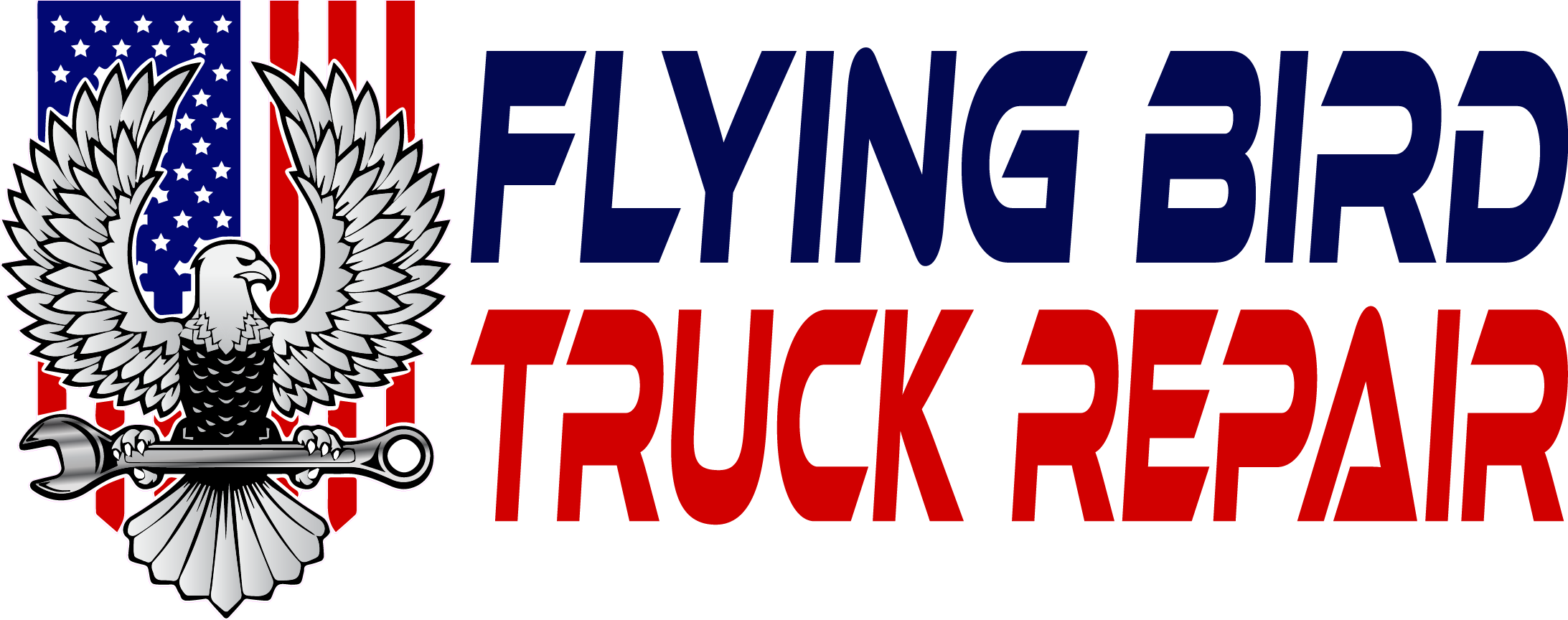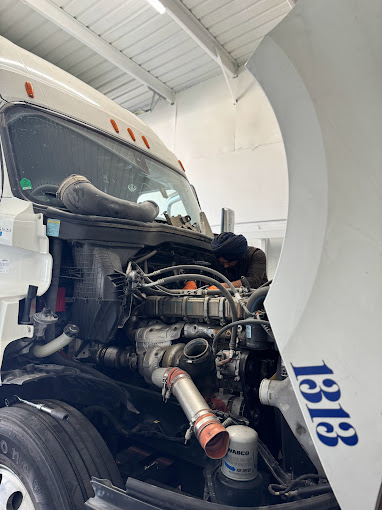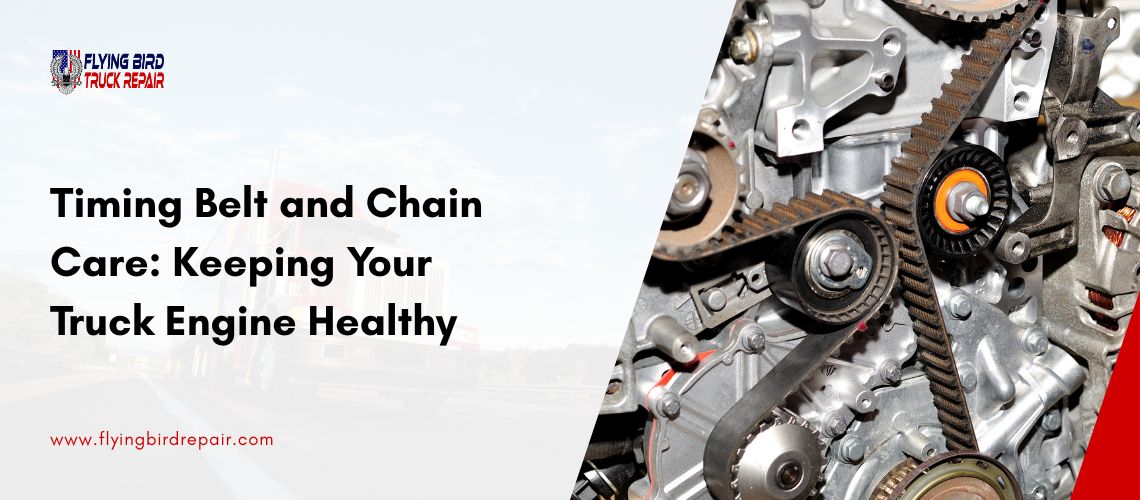If you drive a diesel vehicle—whether it’s a heavy-duty truck hauling freight across long distances, a commercial van making local deliveries, or a pickup used for towing trailers—you already know it’s built for serious performance. Diesel engines are respected for their strength, long life, and superior fuel efficiency, especially under heavy workloads and tough conditions. They’re made to go the distance—but like anything that works hard, they need the right kind of care to keep running at their best.
That’s where preventative maintenance for diesel vehicles plays a critical role.
Rather than waiting for things to go wrong and reacting to costly repairs or unexpected breakdowns, preventative maintenance is all about staying one step ahead. It’s a proactive approach that helps you spot issues before they become problems, and it’s one of the smartest habits a diesel driver can adopt. Whether you’re managing a single vehicle or an entire fleet, regular upkeep ensures your engine runs smoother, lasts longer, and delivers the performance you depend on day after day.
Preventative maintenance isn’t just about oil changes or topping off fluids—it’s a full-circle approach to caring for your diesel vehicle. From monitoring the fuel system and checking filters to inspecting belts and batteries, the right care plan can mean the difference between a dependable engine and one that leaves you stranded when you can least afford it.
In this guide, we’ll walk through easy, practical, and straightforward diesel vehicle maintenance tips. We’re not talking about complicated mechanics or expensive overhauls. This is simple stuff you can schedule, track, or even do yourself if you’re handy. Whether you’re a seasoned diesel veteran or a first-time owner, you’ll find useful insights that will help you keep your diesel vehicle in top condition.
So let’s dive in—and learn how a little attention today can lead to a lot of peace of mind (and savings) tomorrow.
Why Preventive Maintenance Matters for Diesel Engines
Diesel engines work differently from gas engines. They burn fuel using compression, which means they run hotter, handle more pressure, and typically operate in tougher conditions. This makes them stronger, but also more sensitive when maintenance is ignored.
Without regular care, you risk:
- Poor fuel economy
- Hard starts in cold weather
- Engine overheating
- Premature engine wear
- Costly breakdowns
That’s why routine maintenance for diesel engines isn’t just recommended—it’s necessary.
Let’s explore what you should be doing to keep your diesel engine in top shape.
1. Change the Engine Oil Regularly
Just like with gas engines, oil is the lifeblood of a diesel engine. But diesel engines usually create more soot and combustion by-products, which means the oil gets dirty faster.
What to do:
- Every 5,000 to 7,000 miles, or sooner if you’re towing or driving in bad weather, change the oil.
- Use diesel-rated engine oil (such as oils marked with “C” ratings like CJ-4 or CK-4).
- Don’t forget to change the oil filter each time you change the oil.
One of the most important preventative maintenance practices you can adopt for your diesel engine is to keep the oil clean.
2. Monitor and Replace Fuel Filters
Diesel fuel is not always as refined as gasoline, which means it’s more likely to contain contaminants. That’s why diesel vehicles often have two fuel filters—a primary and a secondary.
Dirty fuel filters can cause:
- Poor engine performance
- Hard starts
- Stalling
- Clogged injectors
Diesel maintenance tip:
Change your fuel filters every 10,000–15,000 miles or as recommended by your manufacturer. And always use high-quality fuel to reduce gunk buildup.
3. Drain the Water Separator
Diesel fuel attracts water. If water gets into the fuel system, it can corrode components and freeze in cold climates, leading to engine failure.
To capture moisture, the fuel system of the majority of diesel vehicles includes a water separator.
What to do:
- Check and drain the water separator regularly (some vehicles have an alert light for this).
- During winter, drain it more often to avoid freezing.
This small step prevents big problems and is one of the best maintenance practices for diesel trucks in colder regions.
4. Pay attention to the cooling system.
Diesel engines run hotter than gas engines. That means your cooling system works harder and wears down faster.
Neglecting your cooling system can lead to overheating, warped cylinder heads, or even a blown engine.
What to do:
- Check coolant levels regularly.
- Don’t forget to flush the coolant system every 2 years or after 30,000 miles.
- Inspect hoses and belts for wear or cracks.
Use only diesel-compatible coolant—don’t mix different coolant types.
5. Don’t Forget the Air Filter
Diesel engines need a lot of air for combustion. A dirty air filter chokes off the airflow, which reduces power and increases fuel use.
- Inspect your air filter every 10,000 miles.
- If it appears to be clogged or unclean, replace it.
- If you drive in dusty or off-road conditions, check it more often.
Maintenance tip:
Engine performance and fuel efficiency are both enhanced by a clean air filter.
6. Inspect and Clean the EGR and DPF Systems
Modern diesel vehicles are equipped with emission control systems like the Exhaust Gas Recirculation (EGR) and Diesel Particulate Filter (DPF).
Over time, these parts can clog with soot and reduce your engine’s power.
Signs your diesel vehicle needs service:
- Loss of power or acceleration
- The check engine light is on
- Poor fuel economy
- Increased smoke from the exhaust
What to do:
- Use a DPF regeneration mode if available (many trucks allow manual regen).
- Have a professional DPF filter cleaning done every 50,000 to 100,000 miles, depending on use.
This is a key part of your diesel truck maintenance guide if you want to pass emissions and keep your truck road legal.
7. Use Diesel Fuel Additives (When Necessary)
Diesel additives are not always necessary, but they can be useful:
- Clean injectors
- Improve fuel quality
- Prevent fuel gelling in winter
This is especially useful for trucks stored for long periods or used in extreme cold.
Pro Tip:
Look for fuel additives that include lubrication agents, especially if you use ultra-low sulfur diesel, which has less natural lubrication.
8. Pay Attention to Battery Health
Usually, diesel trucks need more battery power to start, particularly during colder months.
Weak batteries can cause starting problems, and poor connections can affect onboard systems.
What to do:
- At a minimum, check your battery twice a year.
- Clean corrosion from terminals.
- Battery replacement is recommended every 3-5 years, depending on use and climate.
9. Schedule Routine Inspections
While many diesel maintenance tasks can be done yourself, others need a professional eye.
Book a diesel-specific truck maintenance service at regular intervals—especially before long hauls or seasonal changes.
What they’ll check:
- Engine diagnostics
- Fuel injector performance
- Electrical systems
- Transmission and brake health
- Exhaust leaks
Look for shops that specialize in preventative maintenance for diesel vehicles. Not all mechanics understand the differences in diesel systems.
10. Listen to Your Truck
Your diesel vehicle will give you warning signs before something breaks—if you pay attention.
Common red flags:
- Excessive smoke
- Sluggish acceleration
- Odd smells (burning oil, fuel)
- Difficulty starting
- Check the engine or glow plug lights
Do not ignore any of these if you notice them. Early action is the key to cutting diesel repair costs and avoiding downtime.
Bonus: Diesel Maintenance Tips for Cold Weather
Winter can be rough on diesel engines.
Follow these extra steps when temperatures drop:
- Use anti-gel fuel additives
- Plug in your block heater overnight
- Let your truck warm up before driving
- To lessen moisture, keep your tank at least halfway full.
Cold starts are one of the biggest stressors on diesel engines—preparation is protection.
FAQs: Diesel Vehicle Maintenance
Q1: How often should I service a diesel truck?
A good rule of thumb is every 5,000–7,000 miles for oil changes and a full service every 15,000–30,000 miles, depending on your vehicle and driving conditions.
Q2: What happens if I skip preventative maintenance?
Skipping maintenance leads to:
- Clogged fuel or air filters
- Poor fuel economy
- Engine overheating
- Premature failure of expensive parts
- Higher repair costs down the line
Q3: How do I know if my diesel truck needs service?
Look for signs like:
- Excess exhaust smoke
- Sluggish starts
- Loss of power
- Engine knocking
- Warning lights on the dashboard
Q4: Is diesel maintenance more expensive than gas?
Upfront costs may be slightly higher due to dual filters and complex emission systems, but diesel engines often last longer and require less frequent service when properly maintained.
Conclusion: Build a Habit, Save a Headache
Your diesel vehicle is an investment. Whether you use it for work, hauling, or everyday driving, preventative maintenance for diesel vehicles is the secret to keeping that investment strong.
By sticking to a routine:
- You save money
- Prevent surprise repairs
- Keep your engine performing at its best
- Stay safe and efficient on the road
Remember, diesel engines aren’t just powerful—they’re built to last. But only if you care for them.
So, grab your checklist, pop the hood, and stay ahead of the problems. A few minutes of care today can save you thousands tomorrow.
And if you’re not sure where to begin, reach out to your local diesel truck maintenance experts or schedule a visit with a truck repair service near you.
Your truck—and your wallet—will thank you.




